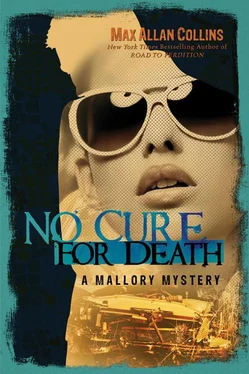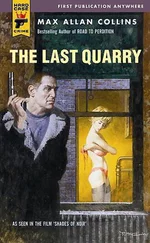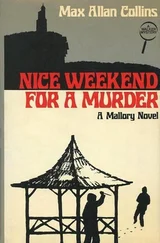Max Collins - No Cure for Death
Здесь есть возможность читать онлайн «Max Collins - No Cure for Death» весь текст электронной книги совершенно бесплатно (целиком полную версию без сокращений). В некоторых случаях можно слушать аудио, скачать через торрент в формате fb2 и присутствует краткое содержание. Год выпуска: 2012, Издательство: AmazonEncore, Жанр: Криминальный детектив, на английском языке. Описание произведения, (предисловие) а так же отзывы посетителей доступны на портале библиотеки ЛибКат.
- Название:No Cure for Death
- Автор:
- Издательство:AmazonEncore
- Жанр:
- Год:2012
- ISBN:нет данных
- Рейтинг книги:4 / 5. Голосов: 1
-
Избранное:Добавить в избранное
- Отзывы:
-
Ваша оценка:
- 80
- 1
- 2
- 3
- 4
- 5
No Cure for Death: краткое содержание, описание и аннотация
Предлагаем к чтению аннотацию, описание, краткое содержание или предисловие (зависит от того, что написал сам автор книги «No Cure for Death»). Если вы не нашли необходимую информацию о книге — напишите в комментариях, мы постараемся отыскать её.
No Cure for Death — читать онлайн бесплатно полную книгу (весь текст) целиком
Ниже представлен текст книги, разбитый по страницам. Система сохранения места последней прочитанной страницы, позволяет с удобством читать онлайн бесплатно книгу «No Cure for Death», без необходимости каждый раз заново искать на чём Вы остановились. Поставьте закладку, и сможете в любой момент перейти на страницу, на которой закончили чтение.
Интервал:
Закладка:
Harold shrugged. “Stefan knew how his uncle’s mind worked. Mr. Norman backed Stefan and hushed the two deaths up, all the way. If nothing else, Mr. Norman knew what kind of unpleasant memories stood to be unearthed by a full-scale investigation of Janet Taber’s death. So such an inquiry was to be avoided. Stefan knew what he was doing.”
“The son of a bitch.”
“I told you what kind of man he was,” Harold said. “A snake.”
Harold stared out over the drop-off; I stared at Harold.
“When did he tell you all this, Harold?”
He didn’t answer.
I went on: “Oh, but that’s obvious-it was right before you killed him.”
Without turning to look at me, he said, flatly, “I didn’t say I killed him, Mallory.”
“You didn’t have to.”
Harold turned his head, not his body, and smiled at me; it was a smile that had no humor in it, just secrets. Harold still had secrets.
“Maybe I didn’t kill him, Mallory,” he said.
And then Rita’s voice, sounding far away, called out to us.
TWENTY-SEVEN
“Hey,” she yelled.
She was coming across the brown grass, coming to meet us, and she was smiling and looking very pretty, very fresh, incongruously so against the image of the bleak gray house looming up back of her.
We stood there awkwardly, Harold and I, like actors who couldn’t remember their lines, and waited for her to join us. She latched onto Harold by the hand and me the same and tugged at us, saying, “You two gonna come in and eat the breakfast you had me cook, or do you like your eggs cold?”
So we turned and walked with her back across the lawn and into the house, turning left as we entered the living room and going through a doorless archway into the wing adjacent to Harold’s room. She deposited us in a breakfast nook, a cubbyhole stuck between the pantry and kitchen and filled by a wooden booth painted with once-vivid colors in a vaguely Scandinavian pattern. The colors in the kitchen area were the brightest in the house, with pale blue walls instead of cream, and with the dimmed reds and blues and yellows of the painted booth in the midst of it.
I sat and stared across at Harold and the air was thick with things unsaid. There wasn’t any purpose in saying them, after all. I looked at Harold and Harold’s single solemn eye and his black patch looked back at me and we knew.
I knew, Harold knew, that Stefan Norman had handled the Mallory problem in the same manner he’d handled the Renata Ferris problem, and that of Janet Taber as well: he’d dispatched Davis, that violent extension of himself, to do his work. Stefan had had no compunction about treating human lives like so many pieces on a chessboard: he was the chessmaster and I was just another pawn for him to send his queen out to get. And even if his queen fell, suicide was not Stefan’s style, not in his makeup.
Harold knew all this. No need for me to tell him.
Rita came in and put a plate down in front of each of us, scooched in next to me on my side of the booth. I looked down at the omelet and the hash browns and the toast and knew I would have trouble getting it down, knew also that I had to. “Oh damn,” Rita said, and got up and went back into the kitchen and came back with coffee and filled our cups.
I poked around at the plate of food, and Harold did likewise, but between bites we exchanged looks, continued our silent conversation.
Harold knew, as I do, as you do, that suicide says despair, that suicide means finality, and a man in despair doesn’t change the facts around “a little” in what amounts to a deathbed confession of murder, just to make himself look a shade less corrupt. He might make excuses, he might even lie to himself, he might rationalize; but shape a slightly different, slightly juggled, slightly edited, slightly more excusable explanation, before putting a gun to his head? Please.
Neither would Stefan be likely to care about sparing old Sy Norman’s feelings.
But Harold would.
Harold had made no secret of his loyalty to Mr. Norman, and had expressed it in no less tangible and eccentric a manner than my first meeting with him when he tried, for the sake of his elderly employer, to scare Janet Taber out of town.
But that was when he was under the mistaken impression that Janet was a “blackmailing bitch,” that was when he was still caught up in the various machinations of Stefan’s plotting. Somewhere recently along the line, Harold had seen through Stefan, Harold had stopped being conned by him and that intense loyalty for Mr. Norman, that fierce protective instinct for the old man who had done so much for him, was channeled into a concentrated effort by Harold to put a stop to Stefan Norman’s scheming.
In my mind, I could see it: Harold stands beside Stefan, holding Stefan’s own gun over him, dictates the “suicide note”; Stefan sits at the desk, takes it all down, sweats as the black, one-eyed apparition hovers over him; the note is finished and Harold shoots Stefan; Stefan falls limp across the desk, like the inanimate object he has become.
“More coffee?” Rita said.
“Please,” I said.
“Harold?”
Harold nodded.
I managed to finish the eggs and potatoes and toast and when I glanced over at Harold, he had done the same. Rita came back, poured refills on coffee, and joined us. Harold and I sipped at the cups, looking away from each other when approaching a stare.
Rita was finally beginning to suspect something was wrong, because the silence hung heavy, like a tapestry pulling at its nails, and as the anxiety began to show on her face, I ventured with, “Fine breakfast, Rita, really fine,” and Harold said, “Yes, yes it is, it’s fine.”
She smiled. “I guess I can understand you boys being so quiet. This whole affair has been a real drain on us all-physically and emotionally both. You wouldn’t believe how relieved I am it’s over.”
“I am pretty tired,” I said.
“You should be,” she said. “You been up practically all night.” She reached across the table and patted her brother’s pawlike hand and said, “How ’bout you, bro? You feeling it yet?”
“I could use some sleep,” he said.
“Did you get back to bed this morning after I called you?” she asked him. “You haven’t been up all this time, have you?”
“I went back to bed,” he said.
I said, “Rita, you called Harold? When?”
“After you called me, when that guy… what was his name? The guy who broke in.”
“Davis.”
“Yeah, him. After you called me, when Davis was killed. I wanted to prove to old hardhead Harold here that you and I weren’t paranoid, that somebody was going ’round doing those things we told him about.” She smiled embarrassedly at her brother. “And frankly, Harold, I was relieved that you weren’t involved, ’cause Mal was entertaining thoughts you might be one of the bad guys. And you did seem mad at me for bringing him here to see you last night.”
I said, “Say Rita, all of a sudden I’m really hungry. You got any more of those hash browns?”
“Hungry? You serious, Mal? Hell, you just poked at your food.”
“No, really, I’m just starting to wake up. I always get hungry when I start waking up. And those hash browns hit the spot.”
“I could whip up some more, I guess.”
“Would you, please?”
She shrugged. “Okay. Harold, how about you?”
Harold said, “Fine.”
She rose from the booth and disappeared around the corner into the kitchen.
I spoke softly, a near-whisper. I said, “You want to tell me… I think I know, but do you want to tell me?”
Just as softly, Harold said, “If you know it, tell it, mystery writer.”
Читать дальшеИнтервал:
Закладка:
Похожие книги на «No Cure for Death»
Представляем Вашему вниманию похожие книги на «No Cure for Death» списком для выбора. Мы отобрали схожую по названию и смыслу литературу в надежде предоставить читателям больше вариантов отыскать новые, интересные, ещё непрочитанные произведения.
Обсуждение, отзывы о книге «No Cure for Death» и просто собственные мнения читателей. Оставьте ваши комментарии, напишите, что Вы думаете о произведении, его смысле или главных героях. Укажите что конкретно понравилось, а что нет, и почему Вы так считаете.












